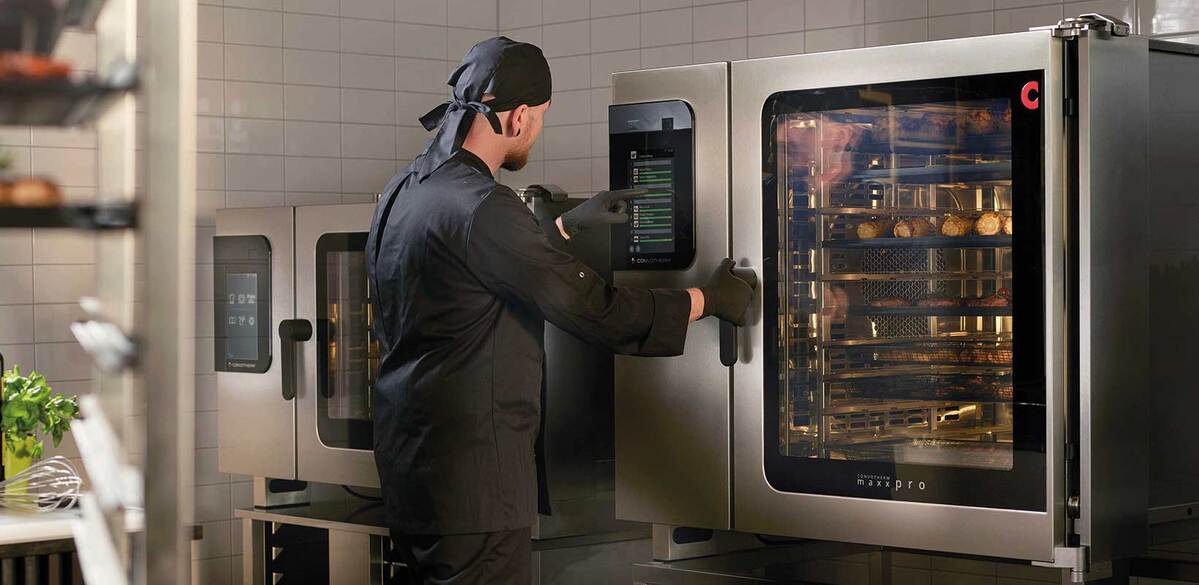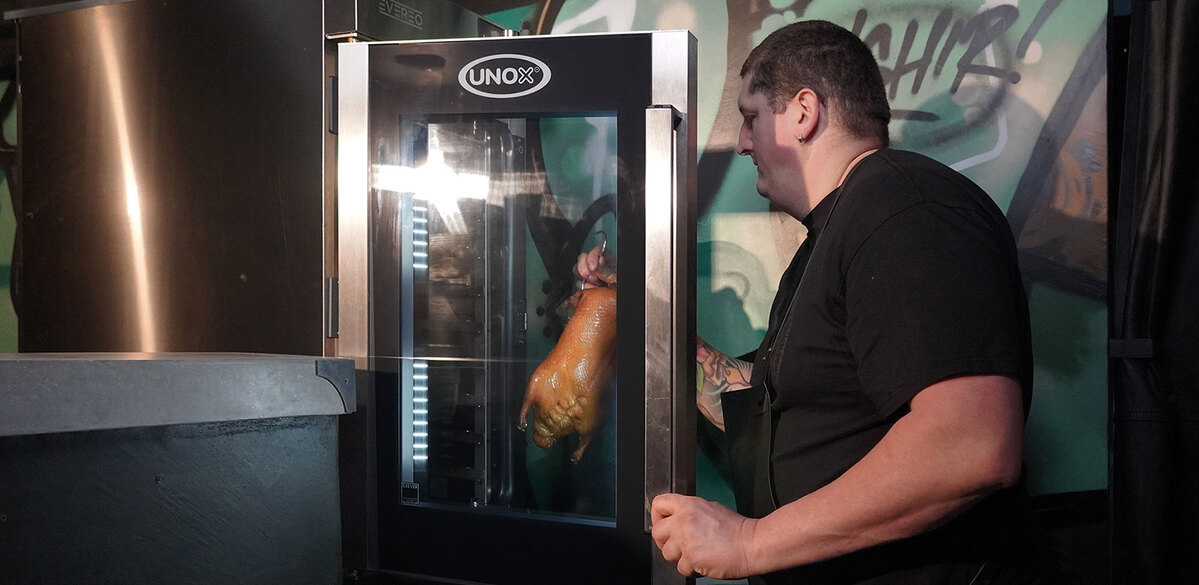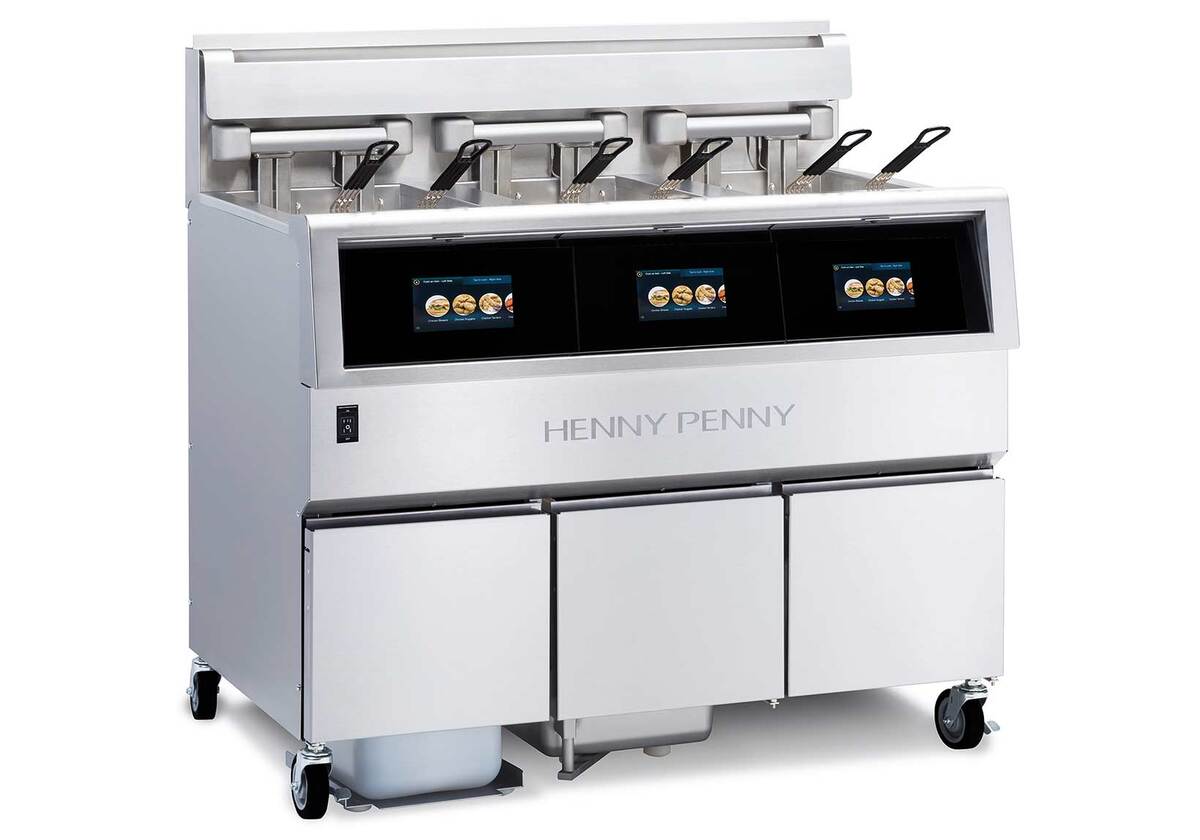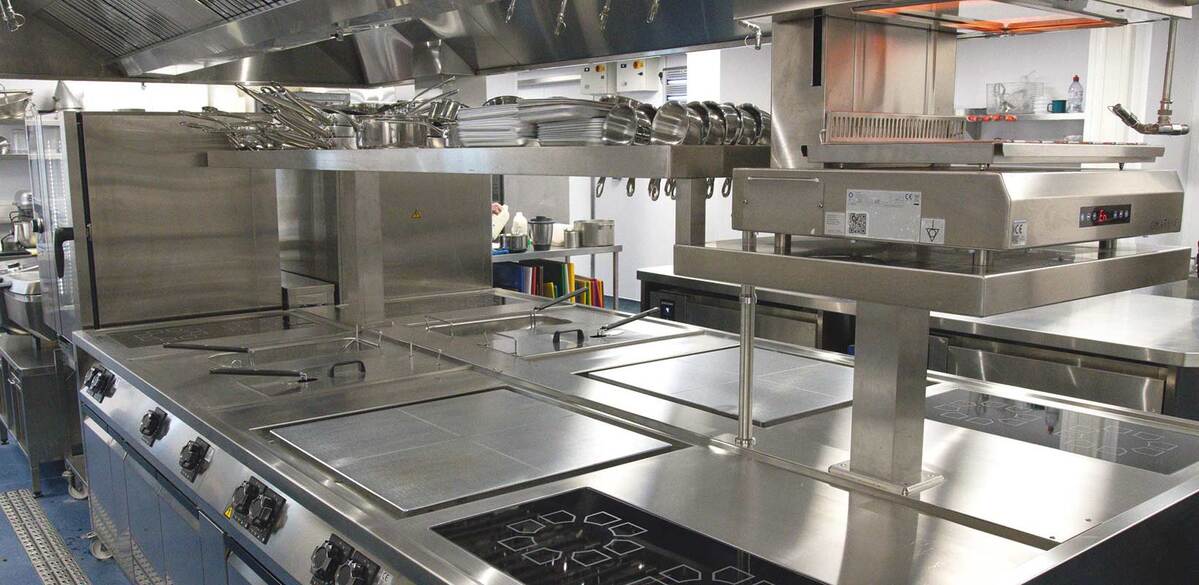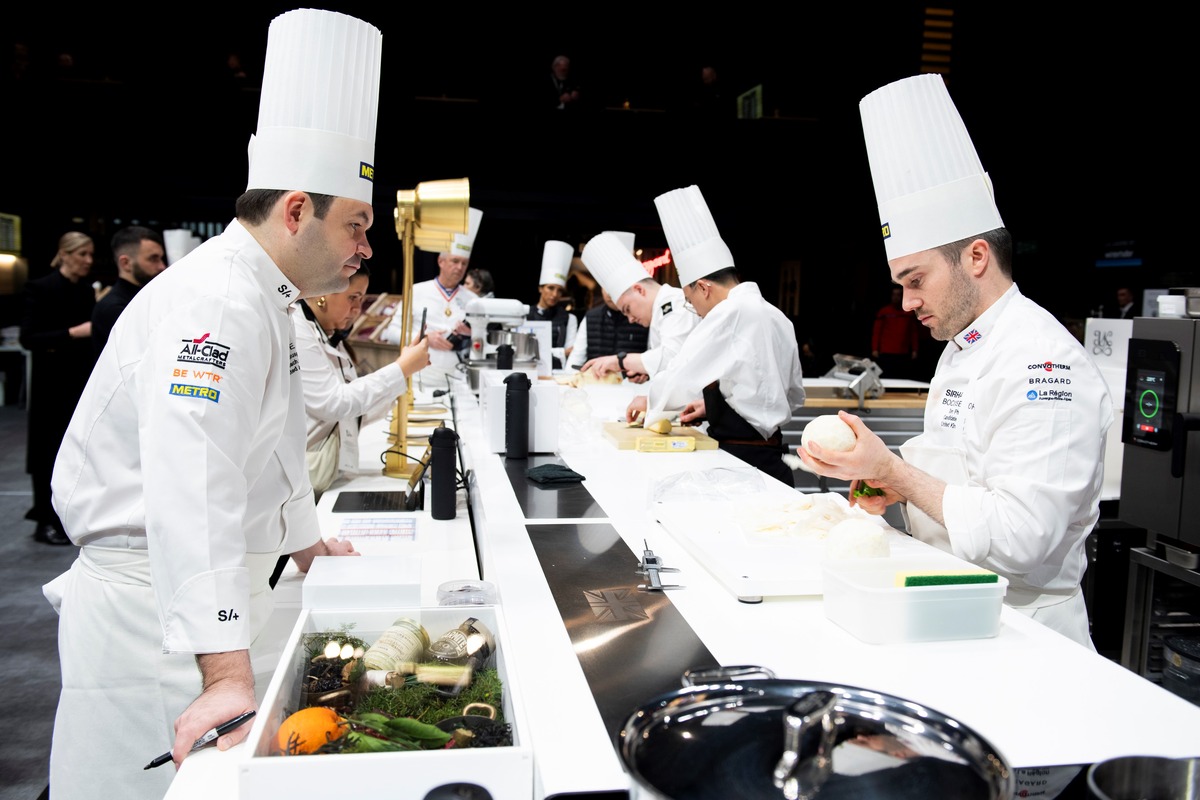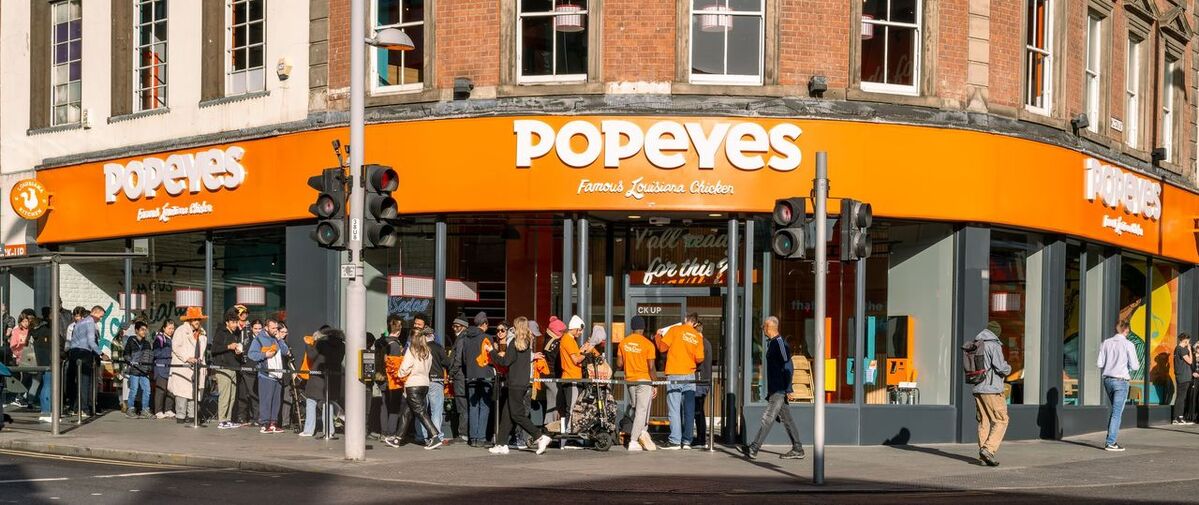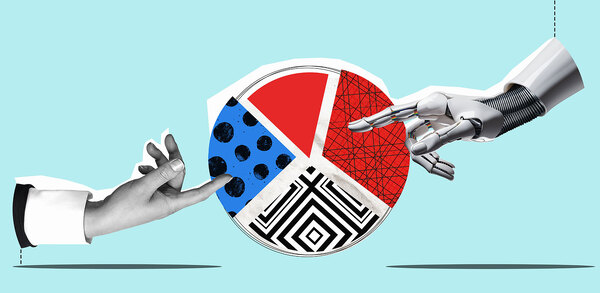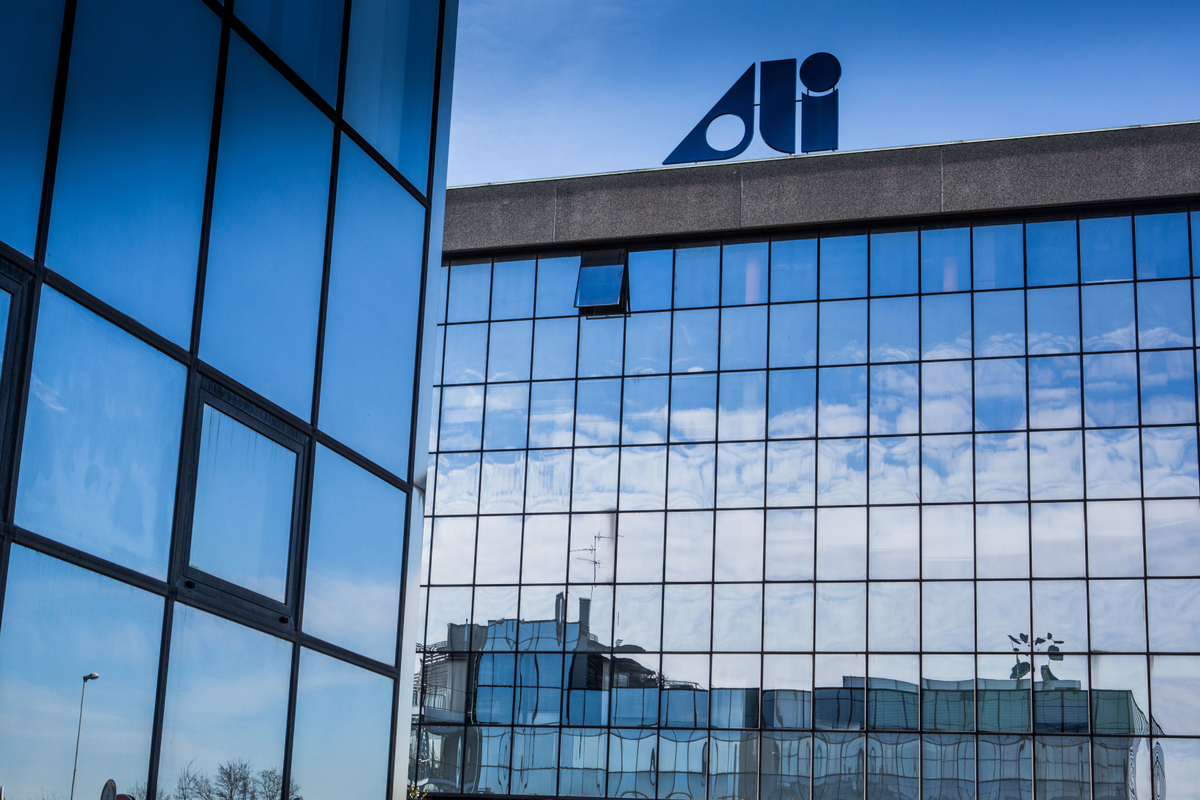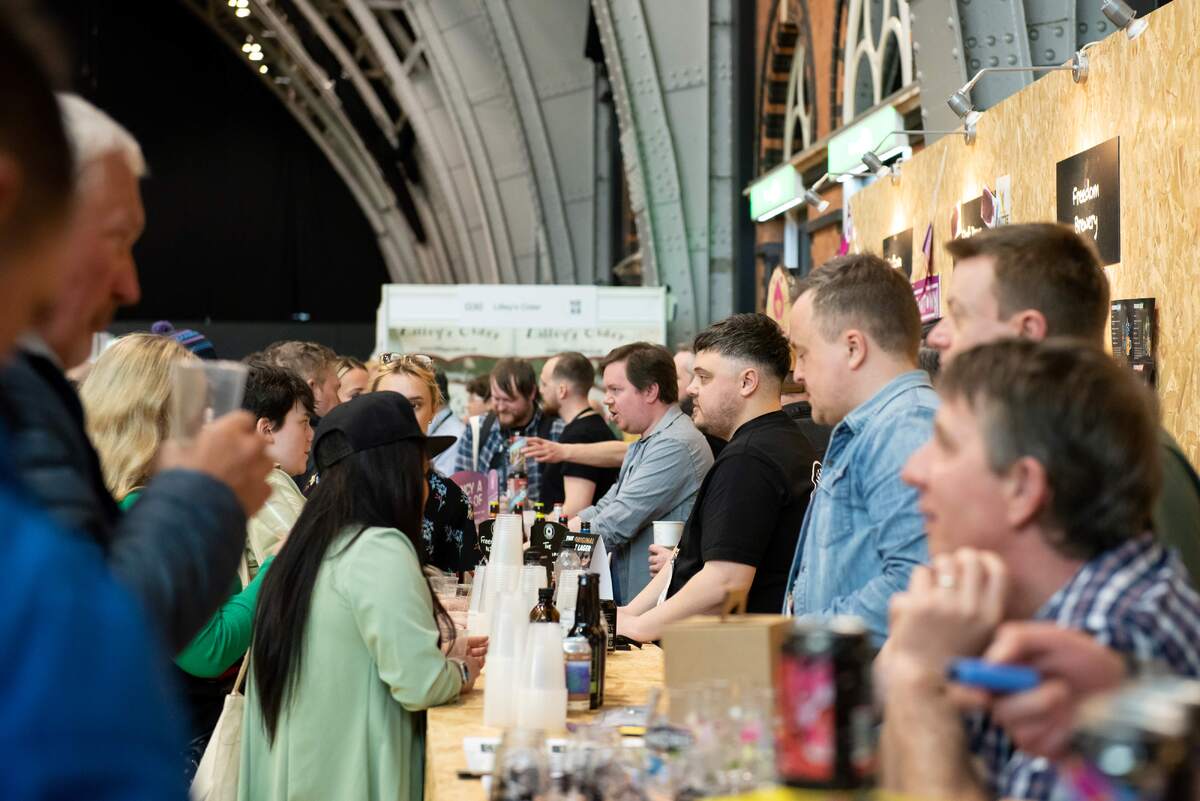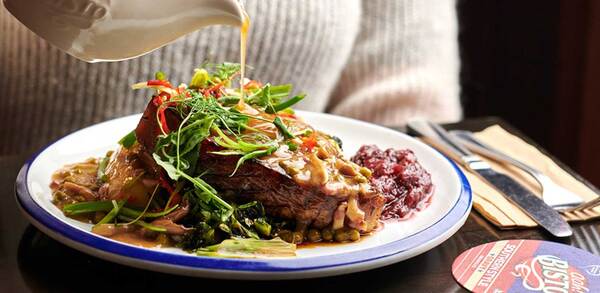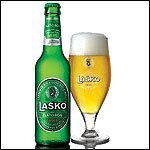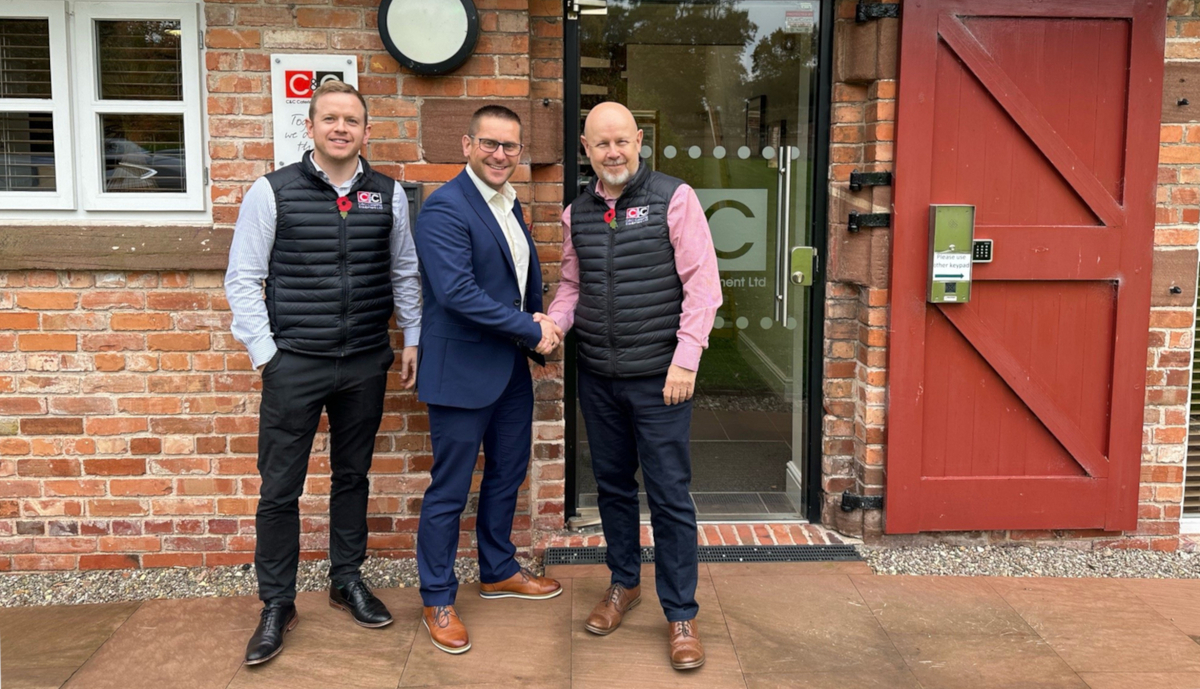The combi-ovens balancing smart with simplicity
Modern combi-ovens have to hit the right spot between being intuitive and simple to use and offering enough automation so that chefs can concentrate on creativity
Professional chefs could be forgiven for experiencing information overload in today’s cutting-edge kitchens. All manner of whizz-bang cooking technology is available, each with its own operating platform, which means a considerable amount of training is needed to understand it all.
Multiply that by the number of staff in the back of house brigade, which can often change, and you wouldn’t blame any kitchen manager for reaching for an aspirin. But while the race to supply the most advanced cooking appliance continues apace, has the supply chain also stopped to consider how it can ensure its units are easy to use?
As the do-everything equipment exemplars, combi-ovens are at the forefront of smart yet simple innovation. For example, Rational has recently released a search assistant function across its iCombi Pro combi-steamer and iVario Pro bratt pan ranges. The new search assistant works in a similar way to an internet search engine – users just tap the magnifying glass symbol on the panel display and type in a keyword. The assistant returns results in anything from cooking paths to usage examples, programs and settings.
Robbie Mukherjee, founder of Muk A G’s Asian Pies and Catering Company in Gloucester, wanted cooking equipment that could prepare his pies in both small and large batches, therefore requiring appliance simplicity and consistency. After a six-week trial of the iVario, Mukherjee says: “It’s very simple process. We had the support from a Rational representative, who assisted me with the cooking and gave me some great training. All of our recipes are programmed in there ready to go, which is a massive plus for me, but there’s also all of the other things you can do on it, such as boil, fry, deep-fry and steam. With regards to getting food out on time, the iVario is quick, it’s easy to clean and we can produce big batches – up to 17 litres.”
With his kitchen now producing up to 500 pies a day, Mukherjee is using the iCombi to slow-braise tandoori chicken overnight and hold to temperature so that in the morning it is ready to be blast chilled.
Talk it out
Unox has prioritised data-driven solutions for its product development in response to the rising costs and high turnover of staff faced by operators. Its latest X-generation combi-ovens, featuring Cheftop-X and Bakertop-X models, are the result of a project that lasted more than three years and combined the expertise of over 50 engineers, physicists, chemists and chefs.
The controls on the brand’s latest oven take inspiration from smartphones and feature Digital.ID, a fast, intuitive and customisable interface, enhanced with artificial intelligence. The ovens can be voice operated with the ‘Hey.Unox’ feature. This, combined with a new optional Optic.Cooking accessory, means that when operators insert a tray of food, the oven recognises the ingredients and automatically starts the correct cooking programme.
According to Scott Duncan, managing director of Unox UK: “The ovens are smarter than anything seen before. The software can also be operated from the oven or via an app for complete remote access, anywhere and at any time.”
“I haven’t seen results like this before” Gareth Ward, Ynyshir
If this sounds like something straight out of science fiction, Unox also offers its Evereo unit, dubbed a ‘hot fridge’, which can hot-hold for up to 72 hours. However, chefs are finding more roles for the appliance, including Gareth Ward at his two-Michelin-starred Ynyshir in Eglwys Fach, Machynlleth, who has been using the Evereo to slow-cook his signature duck dish. He says: “I’ve been developing my duck dish for more than five years now, and a big part of the texture, colour and flavour comes from slow-cooking it for 24 hours in the Evereo. I haven’t seen results like this before. I’ll only use the Evereo to cook the duck now.”
A dream to clean
South Lodge Hotel & Spa in West Sussex, executive chef Lewis Hamblet was looking for versatile and reliable equipment to serve the property’s three restaurants (Camellia, Botanica and the Pass) from an open-plan kitchen. Sister hotel Pennyhill Park recommended Welbilt’s Convotherm maxx combi-oven.
“You can choose between steam or dry heat and control the temperature to within one centigrade” Lewis Hamblet, South Lodge
Since installation, it has proven to be a popular piece of equipment. “You’ll come in some mornings and there’ll be a queue for it”, Lewis says. “It may be located in the Pass, but everyone uses it. You can choose between steam or dry heat and control the temperature to within one centigrade. It can reach up to 2,500°C. The problem with such high heat is that the food discharges so much grease and mess, but all you’ve got to do with the maxx is press a button and the Convoclean [automatic cleaning system] takes it all away.”
Another manufacturer focusing on simple operation is Fagor Professional, which has introduced FagorKonnect technology across its cooking equipment range to make it easier to control with minimal training. Its connected kitchen suite offers the operator the chance to control, monitor and alter the equipment while away from the kitchen itself.
The firm’s iKore suite of combi-ovens, including the Advance and Concept series, also feature Fagor Touch technology, with full programmability that was created to be simple for kitchen staff to learn.
Suite spot
But could some of these advances go too far and actually contribute to reducing cooking expertise? Steve Hobbs, director at cooking equipment supplier Grande Cuisine, warns: “While these innovations promise heightened productivity and streamlined processes, they can also come with unintended consequences, particularly in relation to skill development.
“For instance, although automated cooking systems can precisely control temperature and cooking times, they can remove the need for chefs to master the nuances of heat management and flavour development.”
Hobbs emphasises that technology should integrate automation in a way that enhances chefs’ abilities and frees up time for more innovation, and that by fostering a culture of lifelong learning and professional development, the industry can safeguard against deskilling tendencies.
Grande Cuisine strives to balance technology and skill requirements in its cooking suites, including the Mareno M series. Each range in the series is designed for a specific purpose and user. Executive head chef Olly Jackson at the Mount Somerset, a fine dining restaurant in Taunton, Somerset, has worked with Hobbs on installing the first Mareno M series cooking suite in the UK.
Jackson says: “Once Steve showed me what it was capable of in terms of energy efficiency, the range of options and the fact that all the appliances could be set under a one-piece top that was super-easy to clean, it was obvious that the M series was exactly what we needed.”
Elsewhere cooking suite supplier Exclusive Ranges is the distributor for Menu System, whose bespoke induction ranges are developed using its own technology. Items of equipment that are integrated into the cooker, such as ovens, induction tops, fryers and grills, are all online on Data Lounge, the Menu System data management platform, and are accessible on an app.
Stanwell House, a Grade II-listed Georgian hotel in Hampshire, opted for a Menu System cooking range with Data Lounge for its refurbished kitchen. The control and extent of the information that could be obtained from the cooker was key to Stanwell House’s decision.
The Stafford in London’s St James’s wanted to modernise its kitchen, with the Stafford Collection’s food director Lisa Goodwin-Allen working hand-in-hand with executive chef Jozef Rogulski to search for an advanced cooking range that would optimise the kitchen’s basement space.
“The old range had been here for a long time – over 10 years. It was gas-fired with a big flue and it used a lot of energy,” Goodwin-Allen says. “We wanted something that made the kitchen quite spacious so we could see each other and speak to each other.”
She and her team turned to Electrolux Professional and its thermaline series of modular cooking suites. She says: “You put a pan on and it boils within seconds. With the planchas you don’t need pans, you can actually cook ingredients on top of it. The whole kitchen feels much cleaner, it’s much more energy efficient, and the guys really enjoy cooking on it.”
Frying delight
It’s not just full cook suites that need to balance technological advancement with ease of use. Fryers are the staple of many a commercial kitchen, and manufacturer Henny Penny believes it has combined technology and simplicity with its latest F5 range. The F5, available in the UK from Jestic Foodservice Solutions, is a low-oil-volume fryer designed so that any kitchen team member can operate it.
The F5 can be pre-programmed with a wide range of menus and food items and is controlled from a ‘kitchen-proof’ touchscreen display that replicates smartphone technology.
Sanjay and Rishi Chandarana, owners of Peckers chicken restaurant in Hitchin, chose Henny Penny’s Evolution Elite fryer and its four-head pressure fryer. They say: “We knew when we were planning the store that we wanted the very best in terms of operations, reliability and service. Henny Penny has been a great addition to the kitchen, and we will definitely install Henny Penny in our future sites.”
Some chefs, however, remain big proponents of gas cooking, and believe that no new electric counterparts can substitute the control delivered using gas, but grill manufacturer Synergy Grill Technology feels that both offerings can be equally effective.
Having begun its product development in gas, in 2021 it launched the eGrill. Like gas grills, the eGrill turns the liquid that comes from the food during the grilling process back into a naturally-flavoured vapour, which helps baste the food as it cooks, so locking in the moisture. Its digital display shows the desired setting and the temperature the grill has reached, while tactile buttons also allow chefs to control the unit in 1°C increments.
Andy Watts, head chef at the Jack Russell Inn in Faccombe, Hampshire, says: “For me, having a Synergy eGrill was a must, having worked on this amazing bit of kit in two of my previous pubs. Many of our chefs hadn’t worked on a Synergy Grill before and from first time they used it, they were blown away.”
All of these advances show that control needn’t be sacrificed at the alter of progress, and indeed the two can have a successful marriage. With the next generation of digital natives coming through to kitchens, smartphone-simulating interfaces for cookers will feel very natural to chefs and the main issue the industry will have to guard against is accelerating deskilling. Hopefully no-one will get left behind in the perpetual forward motion.
Chef-led changes
Most leading cooking equipment manufacturers employ chefs to help with new product development, says Paul Anderson, chair of the Foodservice Equipment Association.
He says: “Manufacturers can get guidance in product development from someone who looks at the equipment from the point of view of a chef. At the same time, a lot of market research goes into changes that manufacturers make to their equipment. This means the changes and additions to features are mainly led by the people who will use it.”
He feels that advances in cooking technology are made to improve the cooking process and make life easier for chefs. “If used correctly, the equipment can simplify the cooking process, ensuring the product is cooked to perfection and thus both reducing food waste and meeting the customer’s expectations.”
While he acknowledges that people who regularly use touchscreen phones, tablets, computers and apps find it easier to adapt their skills to the ‘logic’ used in some of the latest cooking technology, for those less familiar with the digital world “complex equipment will often have the facility to be used in manual mode – for example, with combi-ovens, staff might simply decide to choose heat, steam or combination and adjust the temperature”.
Suppliers
Electrolux Professional
www.electroluxprofessional.com
Exclusive Ranges
Fagor Professional
Foodservice Equipment Association
Grande Cuisine
Jestic Foodservice Solutions
Rational
Synergy Grill Technology
Unox
Welbilt



